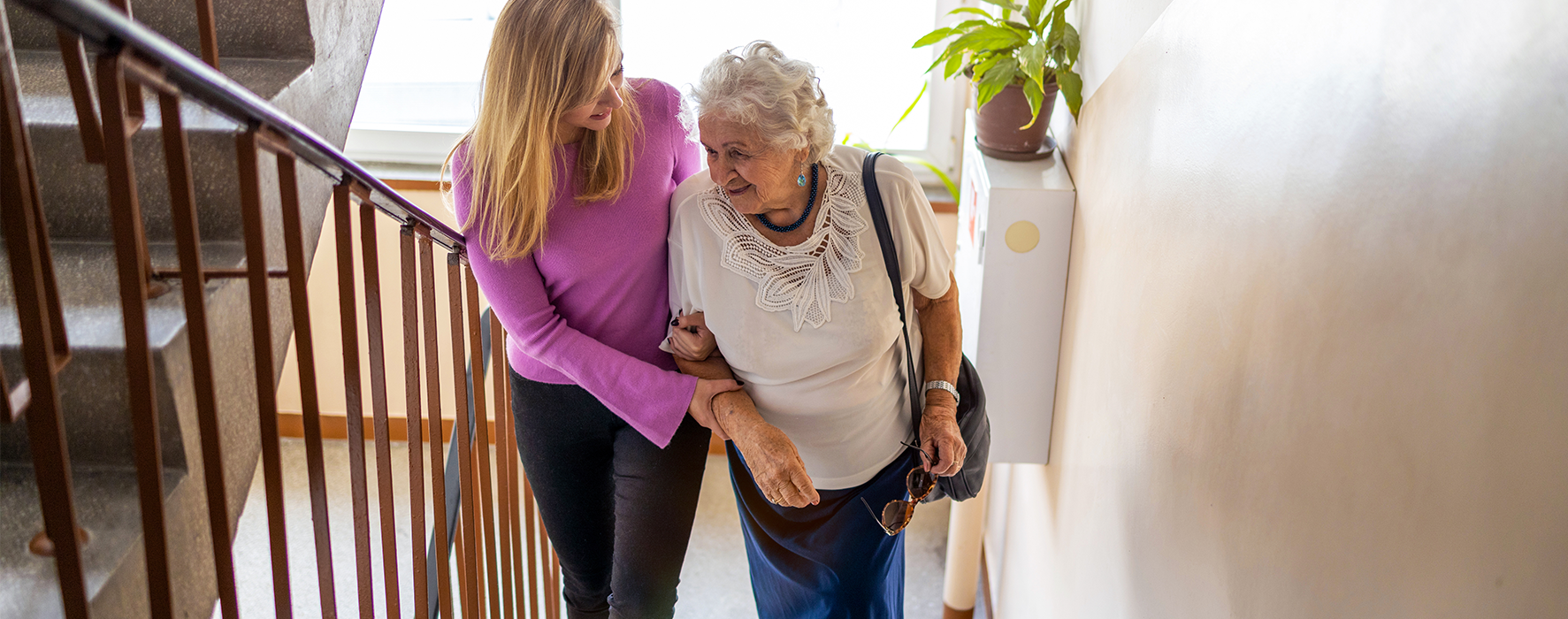
April 21, 2025
The Physical Health Risks of Caregiving
It’s not surprising that the stress of family caregiving causes physical strain, but the actual health consequences of being a caregiver will probably shock you. For example, spousal caregivers with heavy caregiving responsibilities have a 63% higher mortality rate compared to their non-caregiving peers. Compromised immunity for caregivers of dementia patients can last for years after they’re no longer providing care. From acid reflux to heart attacks, family caregivers face increased health risks that can make their role even more challenging.
The Physical Health Risks Are Numerous and Varied
The physical health risks for caregivers vary widely, depending on the intensity of the caregiving scenario, the age and health of the caregiver, and the duration of caregiving. A healthy middle-aged caregiver providing less than 10 hours of care per week for six months will have very different risks than an elderly spouse caring for a partner with dementia for many years. But even a moderate caregiving scenario can increase some health risks. Let’s break down the potential health risks and then explore how caregivers and their families can work together to reduce their impact.
Increased risk of cardiovascular health problems: High blood pressure is a well-known side effect of chronic stress, but the risks to heart health go beyond that. Female caregivers are especially susceptible to developing heart health issues, with caregiving more than 9 hours a week associated with a doubling of the risk.
Increased risk of diabetes and cancer: Long-term caregivers are particularly vulnerable to the effects of compromised immunity due to stress, lack of sleep, and lack of time for self-care, including preventive measures such as exercise and good nutrition. This includes a higher prevalence of diabetes and cancer.
Increased risk of physical injury: Family caregivers aren’t trained professionals, but they often perform physical tasks such as transferring and lifting. Especially if the caregiver is older, has a disability or previous injury, or repeats these tasks over time, the risk of back injuries, fractures, and related chronic pain is higher than for non-caregivers.
Compromised immunity: Caregivers have higher levels of stress hormones (23%+) and lower antibody response (15%-), leaving them more vulnerable to infection. For caregivers of dementia patients, immune systems don’t recover until 3 years after their caregiving duties end, raising the chance they’ll develop a chronic condition.
What are the main factors driving these elevated risks?
Some of the factors that lead to poor health outcomes for caregivers are well-known, while others are less obvious. Here are some key factors that affect outcomes:
Missing doctors’ appointments: Many family caregivers skip their medical appointments. Nearly ¾ of family caregivers report not visiting the doctor as often as they should. One in five female caregivers skipped mammograms and are twice as likely to miss refilling a prescription as non-caregivers. Those living in rural communities are even more likely to miss appointments due to the greater distance to medical services.
Less freedom to exercise: Family caregivers, especially those who live full time with a care recipient and/or work full time while caregiving, have considerably less time to spend on physical activity. 58% of caregivers report their exercising habits were negatively impacted by their caregiving duties.
Chronic stress: The correlation between more demanding caregiving scenarios and serious physical health outcomes shows us that chronic stress is one of the key factors that impact caregivers. Caregiving for dementia patients is related to the highest physical risks. Sleep disruption is more common for family caregivers and contributes to reduced energy, lower immunity, and likelihood of injury. Mental health issues are also higher for family caregivers and can contribute to negative physical health.
Less time to focus on healthy food: Family caregivers are managing many tasks that take up considerable time and energy, leaving their own diet to fall to the bottom of their priority list. Six out of ten caregivers report their eating habits deteriorated because of their responsibilities.
Prioritizing the care recipient: Family caregivers intuitively prioritize the person in their care, often without realizing how detrimental this can be to their physical well-being. Finding balance can feel impossible for caregivers, so it is critical that they receive support.
The cost of caregiving: Caregivers face financial impacts that make it more challenging to pay for healthy food, gym memberships, prescriptions, or respite so they can attend their medical appointments. These impacts are more significant for marginalized caregivers, double-duty caregivers, and caregivers who may have to reduce work hours or leave paid work altogether.
How to help family caregivers protect their physical health
The good news is that when family caregivers are well-supported, many of these health risks can be mitigated. If you have a family caregiver in your circle, here are some things you can do to help:
- Hire a personal trainer to come to their home.
- Offer to drive them to appointments.
- Deliver healthy, pre-prepared meals or arrange for a meal service.
- Provide regular respite care or help them arrange for home care services.
- Offer to fill their prescriptions.
- Arrange for an occupational therapist to train them in safe lifting, transferring, and personal care.
- Pay for their gym membership and provide regular respite so they can go.
- If the caregiving scenario is likely to be prolonged, make sure the caregiver gets extended respite. In some provinces, caregivers may be eligible for several weeks of respite each year covered by provincial health insurance.
- If the care scenario involves a care recipient with dementia, especially if the caregiver is an older spouse, pay close attention to the caregiver as this is the highest-risk scenario. Significant support will help mitigate the risks.
- Offer financial assistance if appropriate.
Family caregivers often feel a sense of pride in their role, but they can also feel shame if they think they’re dropping the ball. One of the best things you can do is remind them that they deserve to take care of their physical health and that it’s not neglectful. Taking active steps to enable family caregivers to maintain their wellness includes reassuring them that they will be better caregivers if they maintain their health.




